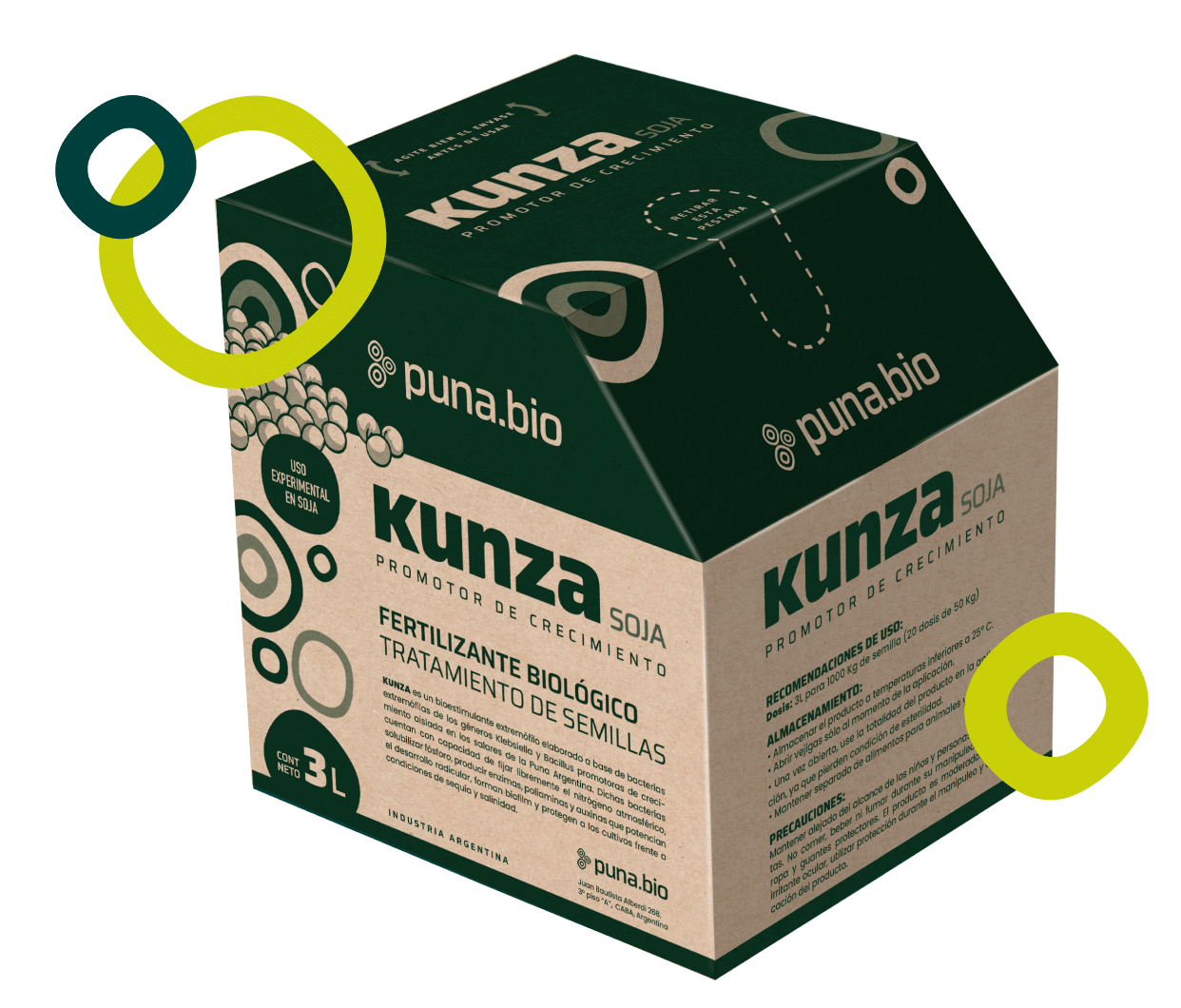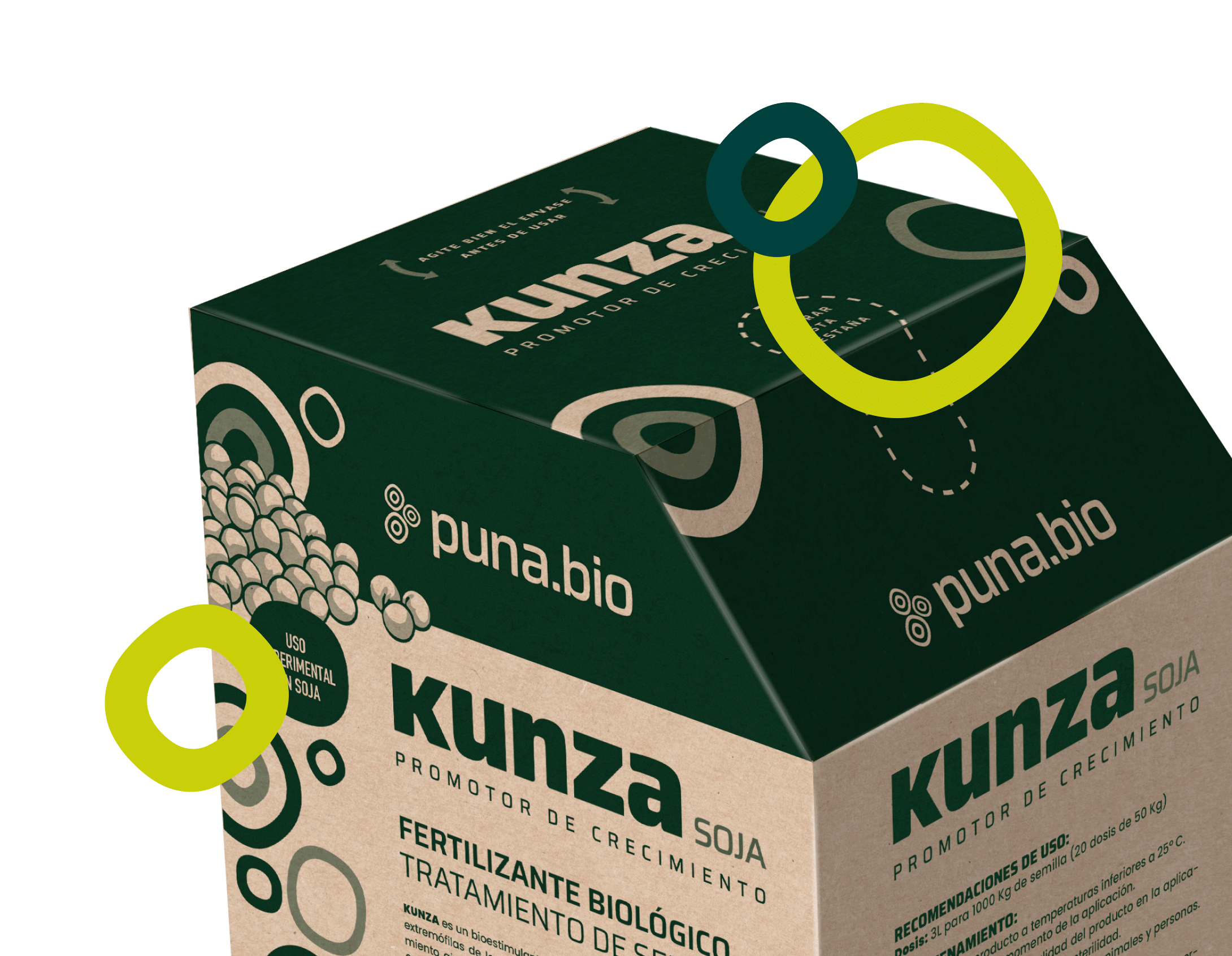We want to expand the frontier
of bioinoculants, launching a
next-generation technology.
That allows us to improve yields in a sustainable way and
to enable the growth of crops in degraded soils.
Our bioinoculants perform better than any other
current bioinoculants in fertile soils, make
saline soils productive, and can be utilized
in many different crops.

The key to our technology is the use of extremophile microorganisms,
obtained from the highest deserts on Earth, that promote growth
under the most extreme conditions.
With our extremophile
bioinoculants, recovering
degraded soil and increasing
arable land will no longer
be impossible.


PunaBio Extremophiles
01. Nitrogen
Extremophiles convert existing nitrogen
in the soil into forms that plants can access more
efficiently, enhancing nitrogen uptake.
02. Phosphate
Extremophiles are capable of mineralizing/solubilizing
insoluble soil phosphate to release soluble phosphate
and making it available to plants. Therefore, improving
the crops’ health, growth and yields.
03. Enzymes
Extremophiles synthesize enzymes, which
provide protection against stress factors
and pathogen fungi.
04. Antifungal effect
Extremophiles restrict the growth of
fitopathogenic fungi, particularly
Macrophomina, Sclerotium, Septoria
and Fusarium.
05. Auxins and polyamines
Extremophiles synthesize auxins and polyamines,
which promote plant growth by regulating cell
division and expansion, vascular differentiation,
and lateral root development. In addition, polyamines
improve plants’ tolerance to stress factors.
06. Iron
By producing siderophores, extremophiles not only
enhance the plant iron uptake, improving its
nutrition, but also reduce the available iron
that can be used by phytopathogens.
07. Biofilms
They interact with plants by forming biofilm.
Biofilm improves the microbial colonization and
adherence to the root system, thus stimulating
the roots growth and root hairs formation. The
biofilm creates a microenvironment where nutrient
exchange occurs, enhancing crop development.
Control without inoculation
Bradyrhizobium
+3% Yield improvement
67% Win rate
PunaBio
+10-15% Yield improvement
+90% Win rate
Our Results
Our scientific team is working on and advanced
formulation of living microorganisms, capable of
increasing crop quality and yields.
This seed treatment significantly
increases root mass, length, and
density, improving at the same
time soil health and resistance.

LATEST FIELD TRIALS
Every day more and more farmers
aim to balance their Performance
with Sustainability in its
multiple ways:
Reduce
Use of agrochemicals
Improved
Soil health and avoid compaction
Minimized
Avoid compaction
Reduce
losses for abiotic stress
(drought, salinity, extreme temperatures)


What is the yield
improvement that can
be achieved with
PunaBio’s products?
We are currently finalizing analysis on our
2020/2021 campaign, but we have witnessed average
yield increases ranging from 10 to 15%, with
individual results of up to 45% in soybean,
depending on environment conditions, and win
rates higher than 90%. Our focus is on ensuring
a significant yield boost while providing
PunaBio’s other benefits, for healthier and
more sustainable soils.
When will PunaBio’s product
be available on the market?
Our first product will be a soybean bioinoculant
that, subject to regulatory approval, we expect
to be able to present for campaigns 2022/2023.
In addition, we are currently undergoing more
field trials to extend our product portfolio
to wheat, beans and corn.



